Last Updated on 2025-05-23 by a-indie
My conversation with Masafumi Gotoh of ASIAN KUNG-FU GENERATION was a reunion for me, yabori (Tomohiro Yabe), after 10 years.
My musical journey began here, encountering AKG’s music and opening the door to Western music by listening to ASH’s “Burn Baby Burn” from the Nano-Mugen Fes compilation CD.
And now, NANO-MUGEN FES. 2025, revived after 11 years, will be held not only with overseas artists but also with bands from Indonesia.
This is no mere coincidence… I thought!
It’s a moment where my journey—launching BELONG Media 13 years ago and starting “A-indie,” a site introducing Asian bands in English, 3 years ago—miraculously intersects with their new challenge as an “Asian rock band.”
This special interview heralds the dawn of a new era, acting as a musical bridge connecting Japan and Asia.
Why did they revive Nano-Mugen Fes?
*The Nano-Mugen Fes. performance in Jakarta, Indonesia has been canceled.*
ASIAN KUNG-FU GENERATION Masafumi Gotoh Interview
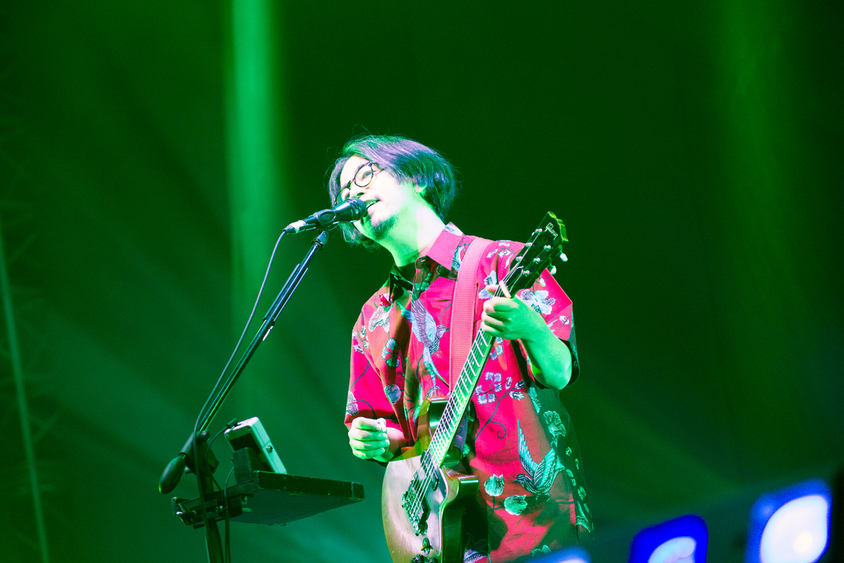
Interview After About 10 Years: Return to the Roots of Nano-Mugen Fes
-yabori: It’s been about 10 years since our last interview, which was back in 2016 around the release of your second solo album, *Good New Times*. Today, I’d like to focus primarily on the NANO-MUGEN FES. 2025 (hereafter referred to as Nano-Mugen Fes), which is being held for the first time in 11 years. First, could you tell us what initially inspired you, as ASIAN KUNG-FU GENERATION (hereafter referred to as AKG), to plan the Nano-Mugen Fes back in 2003?
Masafumi Gotoh: Initially, it was a band project. This was around the time we started Nano-Mugen at Shinjuku Loft. We got to know some artists from overseas, and there were suggestions like, “Why don’t we try playing together at a live house?” We also invited bands like Zebrahead, The Cribs, and ASH to play with us in arenas. For us, we wanted to break down the barrier between Western music (Yōgaku) and Japanese music (Hōgaku). There were so many artists and listeners who only listened to one or the other. Thinking about our future activities, we felt our music wasn’t reaching the people we wanted it to reach. While we looked up to Western music, we had also been seriously dedicated to making music in Japanese. We felt that this barrier was a huge obstacle. We thought things would become difficult for us too unless the number of listeners who enjoyed both Western and Japanese music without distinction increased. We felt it would be good to create a festival that could bridge that gap, and that path led us to Nano-Mugen.
Origin of the Name “Nano-Mugen”
-yabori: Going back to the basics, why did you choose the name “Nano-Mugen”?
Gotoh: Wow, that takes me back! At the time, the smallest unit I knew was “nano.” There was “pico,” too, but I had this image of something expanding endlessly from the smallest point, so I chose “Nano-Mugen.” From “nano” to “infinity” (mugen).
-yabori: So it’s a title combining two opposing words.
Gotoh: That’s right. It’s a title about expanding from the smallest unit to a place beyond measure.
Background of the Compilation CD: A Door to Western Music
-yabori: In my case, I started listening to Japanese rock because of AKG, and I first got into Western music through ASH’s “Burn Baby Burn,” which was included on the Nano-Mugen compilation CD released in 2005 (*ASIAN KUNG-FU GENERATION presents NANO-MUGEN COMPILATION*). Why did you decide to release a CD at that time?
Gotoh: It was an era when CDs still held significant power as media.
-yabori: That’s true.
Gotoh: Our album *Sol-fa* sold incredibly well, and even though sales halved with *Fanclub*, those numbers would still be astronomical today.
-yabori: CDs definitely sold much better back then (around 2005 when the compilation was released).
Gotoh: Now we’re in an age where even the top weekly releases might not reach 100,000 copies, so thinking back, it’s quite extraordinary. We felt releasing a single wouldn’t have much reach, and we thought it would be great to have a sampler where people could hear a bit from each participating artist. There were no subscription streaming services back then, only CDs. iTunes came later, so releasing it on CD was necessary at that time. It would be easy now to just create a playlist, but things weren’t that simple back then.
Encounter with ASH

-yabori: What led to you performing with ASH? You also had a conversation featured in the music magazine “snoozer,” right?
Gotoh: “snoozer” was the catalyst for us becoming friends. We’re from the same generation, and our managements connected as well. Nowadays, with social media, it’s not hard to stay in touch. When they come to Japan, I go to their dressing room without an interpreter, and even though my English is broken, we hang out together until late at night. You know how friends talk, trying hard to convey things even if they can’t speak fluently? It’s fun trying to find the words in my vocabulary because there’s something I want to communicate. But going back to your question, “snoozer” was a major reason.
Background of Nano-Mugen’s Hiatus
-yabori: Nano-Mugen itself went on hiatus in 2014 and is now returning after 11 years. Was there a specific reason behind this?
Gotoh: The number of festivals hosted by artists themselves was increasing, and when we did Nano-Mugen Fes, our staff’s entire year tended to revolve around preparing for it. Inviting bands from overseas, handling negotiations, planning tours, organizing the Japan shows… considering everything, it was extremely demanding and resource-intensive. At the same time, it was also a period when AKG wanted to focus on expanding internationally.
-yabori: I see.
Gotoh: AKG itself traveled to South America and the US. Rather than having everyone gather in Yokohama, we wanted to bring Western music to young people in more regional areas, so we started the Nano-Mugen Circuit. Our way of thinking about festivals changed.
NANO-MUGEN FES. 2025
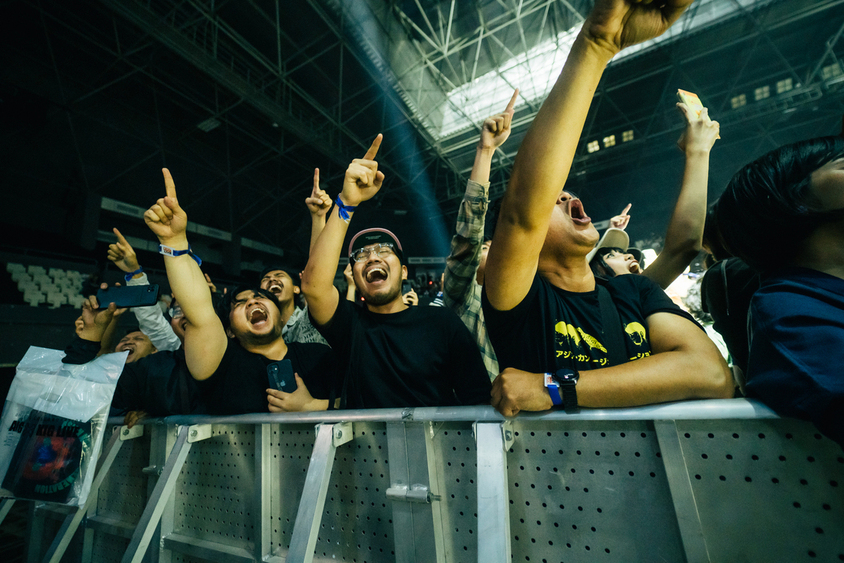
Focus on the Asian Music Scene
-yabori: Actually, besides BELONG Media, we’ve also started a music media outlet called A-indie. It focuses on Asian artists and publishes content exclusively in English. We’ve been running it for about 2-3 years now, and when we started, I noticed a surge in Asian bands emerging. Do you also have the impression that good bands are coming out of Asia?
Gotoh: I only realized there were good bands in Asia quite recently. When I go on tour overseas, I often visit local record stores because I want to buy works from local bands, so I look for places where I can buy them. When I went to Chile, I bought records from local hip-hop groups. Before we visit a place, I’m not really conscious of what kind of scene is developing there, but when I go to record stores, I discover that there are plenty of good indie bands. Information about bands from Indonesia, and especially Taiwan and Korea, comes to Japan, doesn’t it?
-yabori: Artists from Taiwan and Korea often come to Japan for shows.
Gotoh: In Japan, I went to see Dhira Bongs from Indonesia, and we played a show with Phum Viphurit from Thailand in Osaka. Through interacting with them, I got to know various Asian bands, which has been really interesting.
The Charm of Music Discovered at Local Record Stores
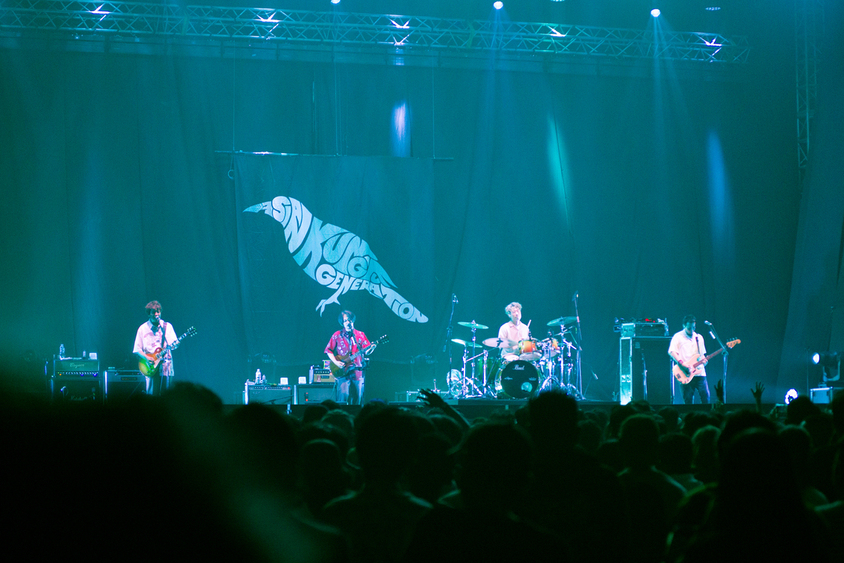
Gotoh: Online, if you search for upcoming shows in Japan, you can quickly see which artists are gaining attention. But actually going to local record stores was significant. Listening to the music there, looking at the jackets… When you decide to buy physical media and take it home, you remember the name, where you bought it, and you find more reasons to like it.
-yabori: It’s hard to remember artist names just from playlists, isn’t it?
Gotoh: There’s too much information; you can’t remember everything. There’s more music out there than you could possibly listen to in a lifetime.
Performers from Indonesia
-yabori: For this Nano-Mugen Fes, you have Voice of Baceprot from Indonesia on day one and The Adams on day two. What made you want to invite these two groups to perform?
Gotoh: The Adams was one of the records I bought in Indonesia; I liked them even before going there. They’re kind of like the Indonesian Weezer. They released albums in 2005 and 2006, so I figured they probably liked similar music to us. I personally love them, so I even included them in the playlist for AKG’s walk-on music during tours. Voice of Baceprot has performed at Glastonbury and places like that.
-yabori: So they are already recognized internationally.
Gotoh: They gained traction overseas first. They wear hijabs (*note: headscarves worn by some Muslim women*) but play black metal. Apparently, they originally intended to play pop music, but now they sing socially conscious lyrics, which I found unique. Also, an Indonesian event promoter gave us a list of great bands from their country, and I listened through all of them. White Shoes & The Couples Company, who visited Japan recently, are also really great.
-yabori: White Shoes & The Couples Company formed in 2002, so they’re veterans, right?
Gotoh: It seems a member of The Adams is also in White Shoes & The Couples Company (*note: Saleh Husein is in both bands*).
About the Weekly Updated New Song Playlist
We are always happy to accept songs that you would like to add to the playlist, so please send us your information using the contact form: ✉️
BELONG updates its new song playlist weekly.
We are always accepting requests for songs to add to the playlist, so please send us your information via the contact form ✉️
MAKUAKE
The Secret Story Behind “MAKUAKE”
-yabori: Is that so! I didn’t know. Now, I’d like to ask about the Nano-Mugen theme song. You’re releasing the new song “MAKUAKE,” arranged by Ryo Konishi. Could you tell us about the process of creating this song as the festival’s theme and why you asked Mr. Konishi to arrange it?
Gotoh: We didn’t actually create “MAKUAKE” intending it to be the theme song, but our staff designated it as such.
-yabori: It was designated?
Gotoh: Yes, he asked if they could use this song as the Nano-Mugen theme. It’s a song we made last year for a fan appreciation event, celebrating Kiyoshi Ijichi’s 25th anniversary of joining the band. I don’t want people to get too fixated on “MAKUAKE” being the theme song, though. We asked Konishi-kun because he’s a fantastic musician, and I’d wanted to work with him someday. As we were developing “MAKUAKE,” I thought it would be best to have someone else arrange it, and it seemed right to ask the young and energetic Konishi-kun. The final form is quite different from the demo I initially sent him, but he created an absolutely wonderful arrangement.
Collaboration with Shigeru Kishida of QURULI
-yabori: The other song is “Little Lennon / Chiisana Lennon” from the album *Wonder Future*, arranged by Shigeru Kishida of QURULI. Was it planned from the start for both songs to have orchestral/brass arrangements?
Gotoh: It wasn’t that we absolutely had to have brass/wind arrangements for both songs; it was just timing. While talking with Kishida-kun from QURULI, the idea came up to re-record “Little Lennon / Chiisana Lennon,” which we had worked on together long ago. Then the conversation moved towards making it a double A-side single. It wasn’t planned; it just happened naturally. The feel of the songs is different, but both turned out full of energy. It feels like we arrived here through a strange twist of fate.
-yabori: The title is “Little Lennon / Chiisana Lennon (Born in 1976 ver.).” Does 1976 refer to your birth year?
Gotoh: Yes. It’s also Kishida-kun’s birth year.
-yabori: You were both born in the same year!
Gotoh: That’s right. We’re the same age.
Changes Embodied in the Lyrics
-yabori: I didn’t know that. Now, I’d like to ask about the lyrics of “MAKUAKE.” I often get the impression that your lyrics tell stories that sublimate past regrets. However, “MAKUAKE” seems to look towards the present and future, rather than the past, giving it a different feel from your previous songs. Were you conscious of this? If there was any change in your mindset, could you share it?
Gotoh: That feeling [of focusing on past regrets] was quite evident up until *Sol-fa*, but I think I gradually moved away from that and my focus shifted towards society. It’s true that this time, the song is quite forward-looking. It wasn’t a conscious decision, but rather, in an era filled with such terrible news, I was thinking about what we should sing. How can we affirm the lives of everyone living in this contemporary age, affirm all living things? That message connects to the idea of “love and peace,” doesn’t it? Saying “stop the war” means respecting each individual life. I believe I approach my creative work now with a stronger sense of how to bless the lives of people walking through this era together than I did before.
Message to the Fans

Gotoh: A message is difficult, but… I think tough times have continued ever since human history began, but the way the world has been shaken up in recent years is tremendous. Like everyone else, while I worry and feel anxious about various things, I believe the time spent with family, friends, and loved ones remains irreplaceable. People in different places hold similar feelings, yet we encounter all sorts of differences – cultural, positional, situational. Taking into account all these commonalities and differences, in a world where it often feels hard to stay sane, my hope is that through the power of our music, or if not our music, then the music of the musicians playing at our festival, or other wonderful music from similar scenes, everyone can somehow maintain the will to live. I would be truly happy if listening to our music helps you affirm your own life, life itself. Also, I hope we can create spaces at festivals and live shows where we can reaffirm those feelings together, so I’d be happy if we could happen to be in the same place somewhere, sometime.
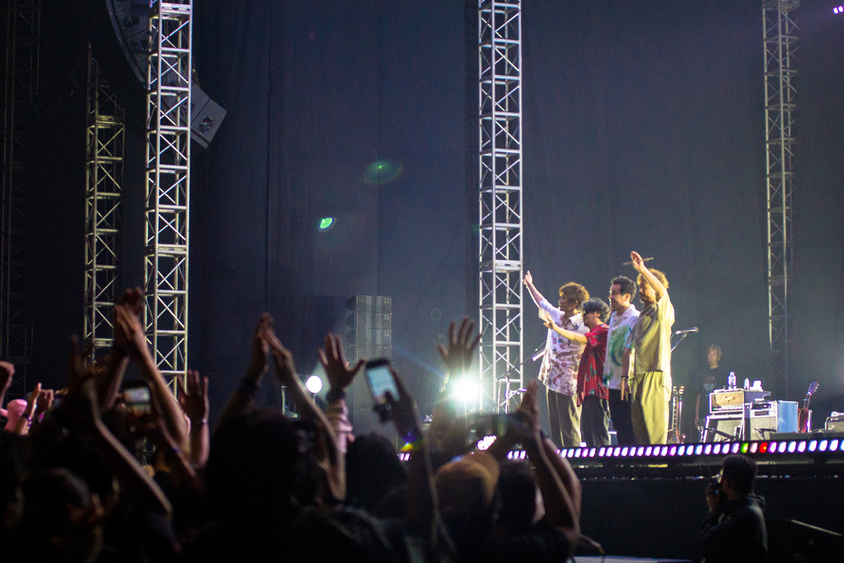
ASIAN KUNG-FU GENERATION Release Information
Single “MAKUAKE / Little Lennon”
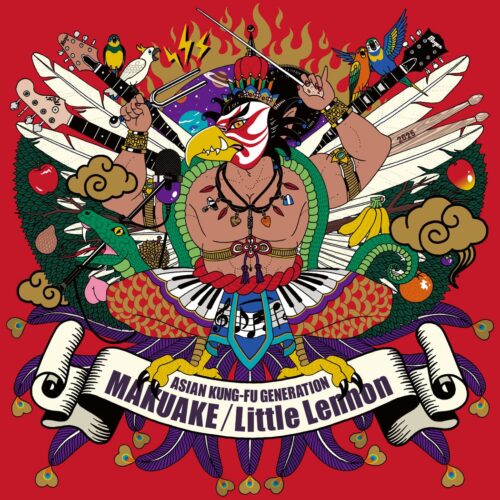
Release Date: May 21, 2025
Tracklist:
1. MAKUAKE
2. Little Lennon / Chiisana Lennon (Born in 1976 ver.)
View on Amazon
ASIAN KUNG-FU GENERATION Profile
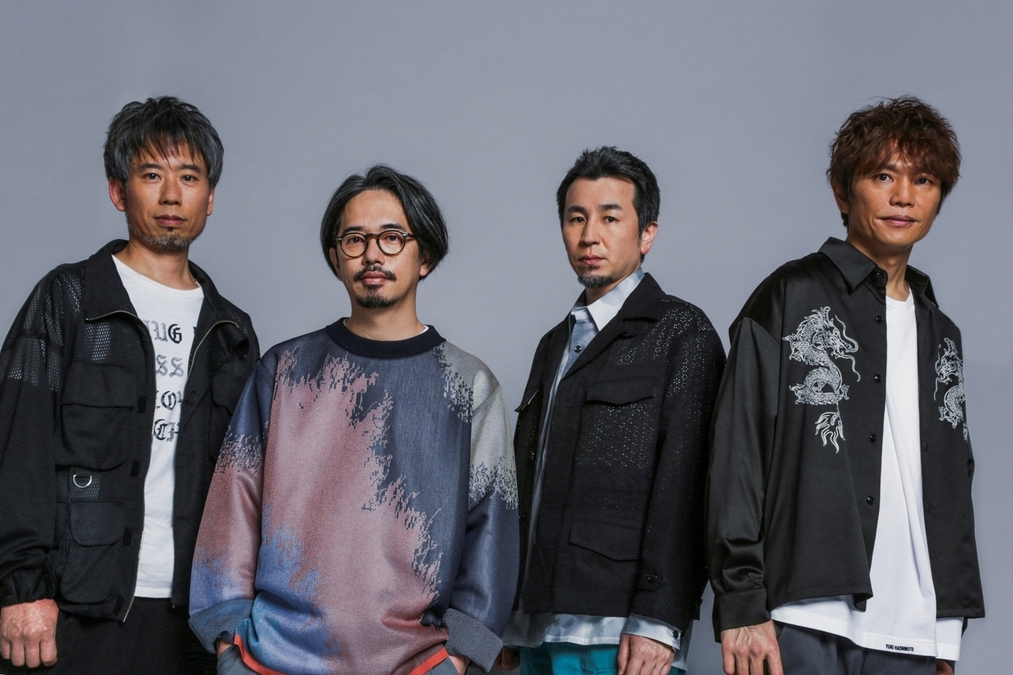
ASIAN KUNG-FU GENERATION is a rock band formed in 1996 by Masafumi Gotoh (Vo & G), Kensuke Kita (G & Vo), and Takahiro Yamada (B & Vo) in a university music club, later joined by Kiyoshi Ijichi (Drums). They made their indie debut in 2002 with the mini-album “Houkai Amplifier,” and the following year, they entered the major scene with a re-release of the same work. They subsequently released singles such as “Mirai no Kakera” and “Kimi to Iu Hana,” followed by their first full album “Kimi Tsunagi Five M,” gaining tremendous support, especially among young people. With numerous signature songs like “Rewrite” and “Solanin,” they have been actively performing live. Their rock festival “NANO-MUGEN FES.” has become a popular event gathering artists from both Japan and overseas. They have also performed internationally from early on, and their musicality is appreciated across borders. The members are also active individually; Gotoh has his solo musical activities under the name Gotch and writes, while Ijichi performs with PHONO TONES and has published cookbooks, showcasing their talents in various fields. With a consistently sincere attitude toward music, they have established a unique position in the Japanese rock scene and continue to have a significant influence on upcoming artists.
[X](https://x.com/AKG_information)
[Instagram](https://www.instagram.com/akfg_official/)
ASIAN KUNG-FU GENERATION Live Information
NANO-MUGEN FES. 2025 in Yokohama
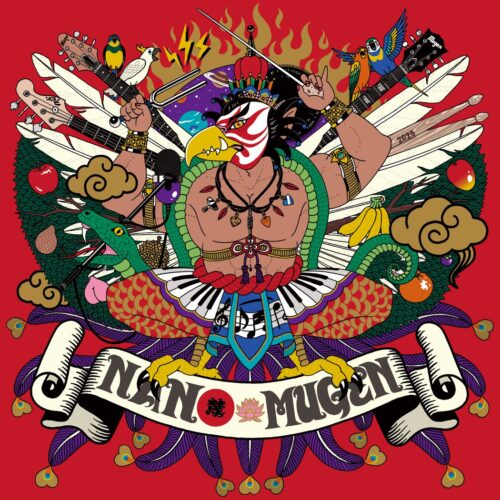
Event Name: ASIAN KUNG-FU GENERATION presents NANO-MUGEN FES. 2025 in Yokohama
Date: May 31, 2025 (Sat) / June 1, 2025 (Sun)
Doors/Start: Doors 9:00 / Start 11:00 (Scheduled to end at 20:30)
Venue: K Arena Yokohama
Lineup:
[May 31]
■ASIAN KUNG-FU GENERATION (JP)
■ELLEGARDEN (JP)
■Fountains Of Wayne (US)
■Hovvdy (US)
■NIick Moon (UK)
■SPECIAL OTHERS ACOUSTIC (JP)
■STRAIGHTENER (JP)
■VOICE OF BACEPROT (IDN)
■THE YOUNG PUNX (UK)
■The Adams (IDN)
■BECK (US)
■Fountains Of Wayne (US)
■Hovvdy (US)
■NIick Moon (UK)
■QURULI (JP)
■YeYe (JP)
■THE YOUNG PUNX (UK)
Tickets:
e+ General First-Come-First-Served [ASIAN KUNG-FU GENERATION presents NANO-MUGEN FES. 2025 Ticket Information](https://eplus.jp/sf/detail/0098140001)
Other Live Information
BECK Live Information
Event Name: BECK “BECK Live in Japan 2025”
Dates & Venues:
May 28, 2025 (Wed) Osaka Zepp Namba (OSAKA)
May 29, 2025 (Thu) Tokyo NHK Hall
Doors/Start: 18:00 / 19:00
Performer: BECK
Official Site: (https://www.nano-mugenfes.com/25/beck/)
The Adams Live Information
Event Name: The Adams NANO MUGEN MINI TOUR 2025
Date: June 3, 2025 (Tue)
Doors/Start: OPEN 19:00 / START 19:30
Venue: Daikanyama SPACE ODD (Tokyo)
Performer: The Adams
Website: (https://www.nano-mugenfes.com/25/theadams/)
Writer: Tomohiro Yabe (yabori)
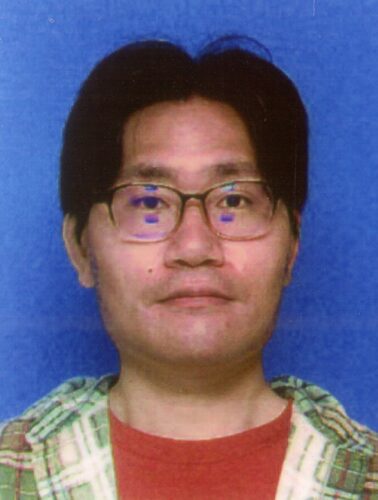
Editor-in-Chief of BELONG Media/A-indie. Started writing a music blog “Timeless Masterpiece” in 2010, which became the predecessor of BELONG.
After writing for “only in dreams” hosted by ASIAN KUNG-FU GENERATION’s vocalist Masafumi Gotoh, he studied music business at a music vocational school.
Has been writing about Japanese and international music for over 10 years.
Previously worked at a music CD rental shop with over 100,000 album titles, specializing in garage rock, psychedelic rock, and Japanese indie rock.
Using these experiences, he has published 26 issues of “BELONG Magazine,” a music magazine focused on “roots rock.”
Currently writing articles based on SEO strategies learned at a web development company. His hobby is watching “Kaiken! Nandemo Kantei-dan.”
You can find his previous articles here
Twitter: @boriboriyabori


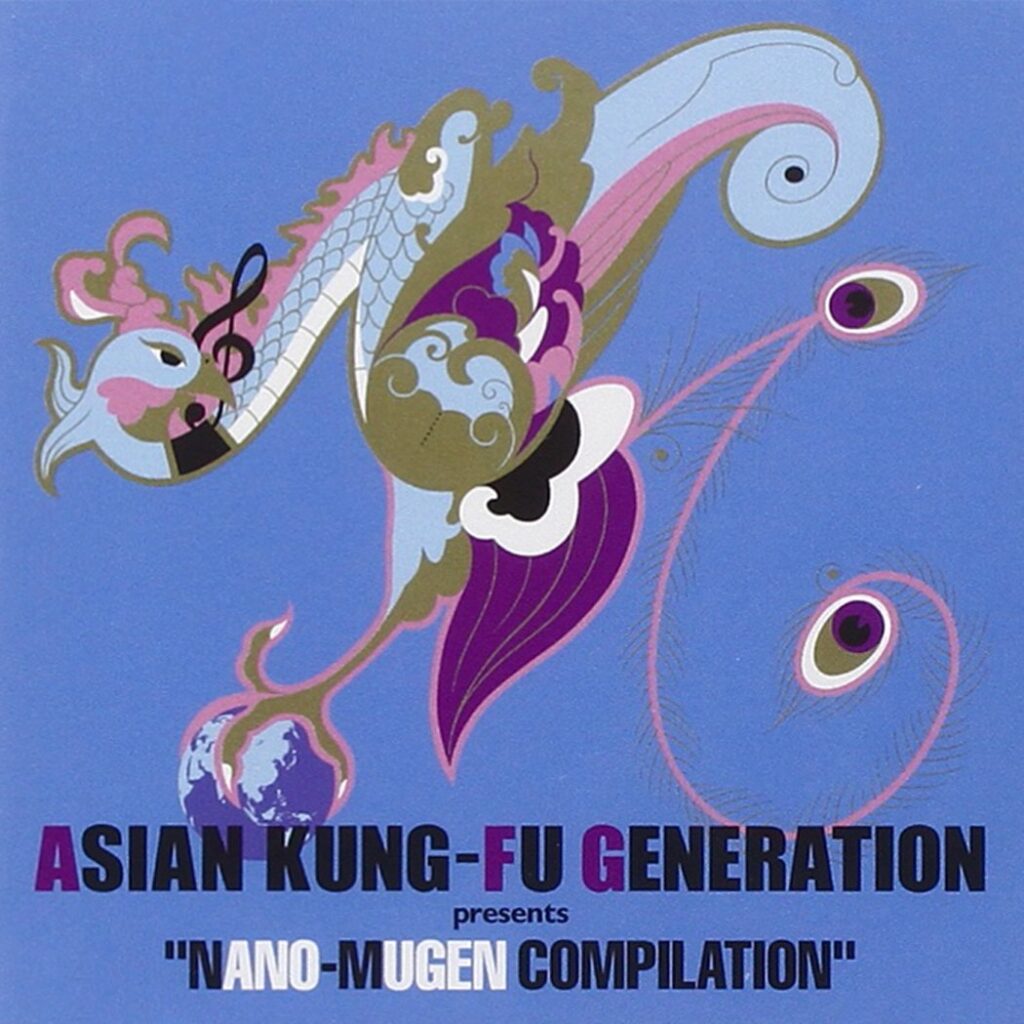
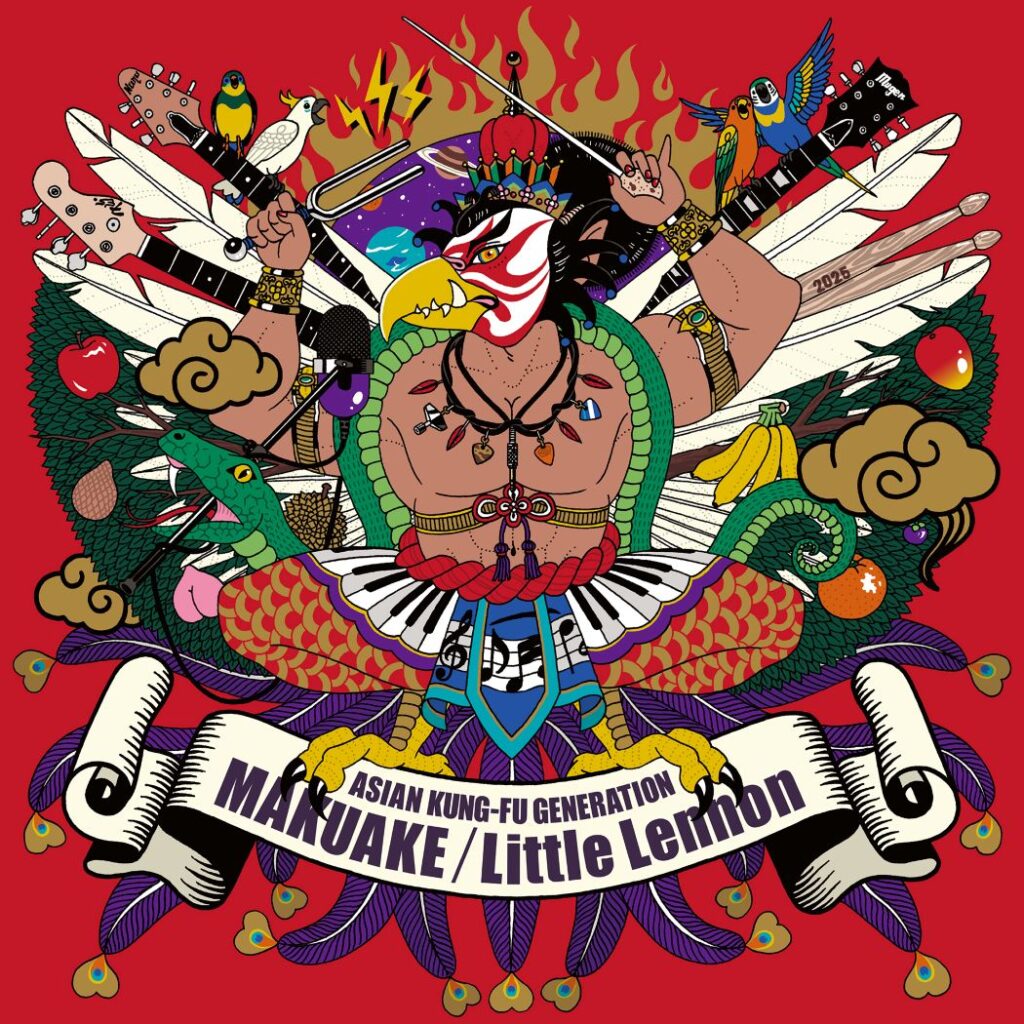
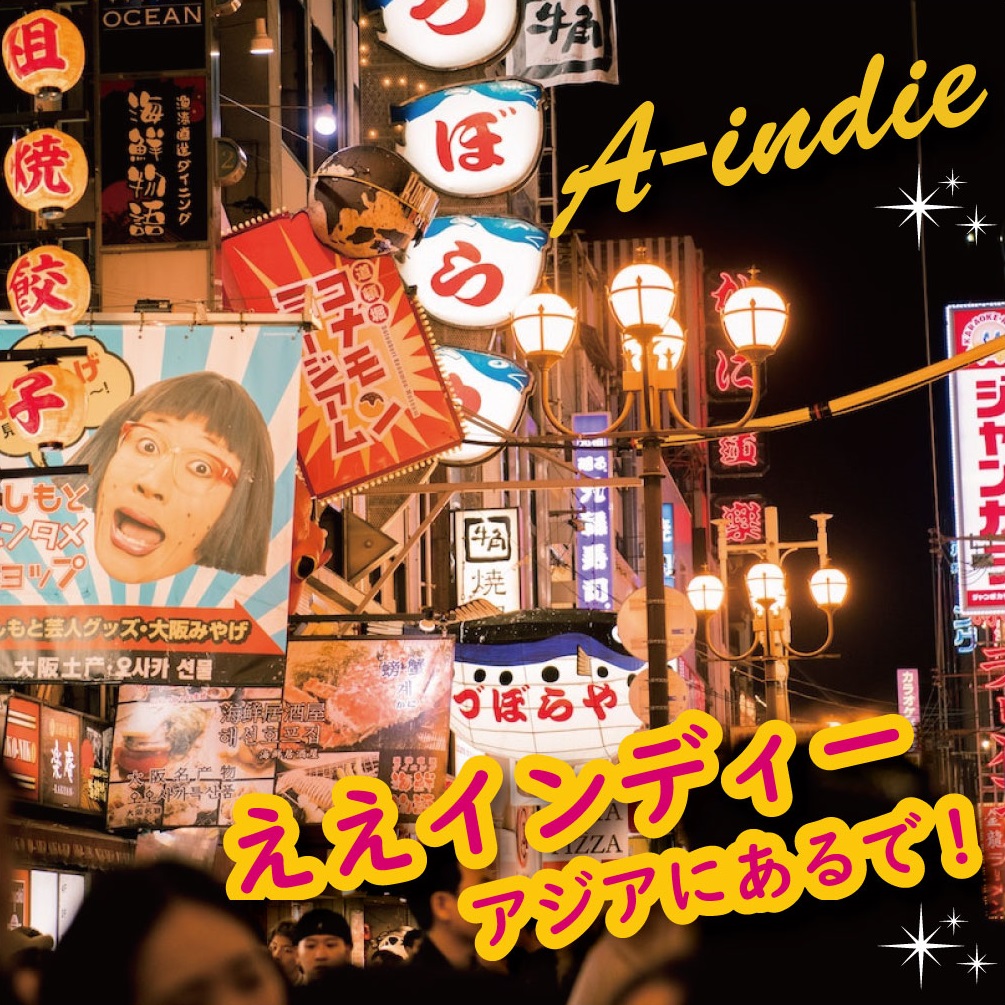

 - is a music media platform run by BELONG, a Japanese music organization. We publish music articles with a focus on indie music.
- is a music media platform run by BELONG, a Japanese music organization. We publish music articles with a focus on indie music.